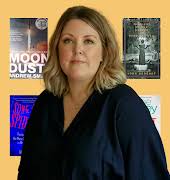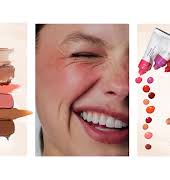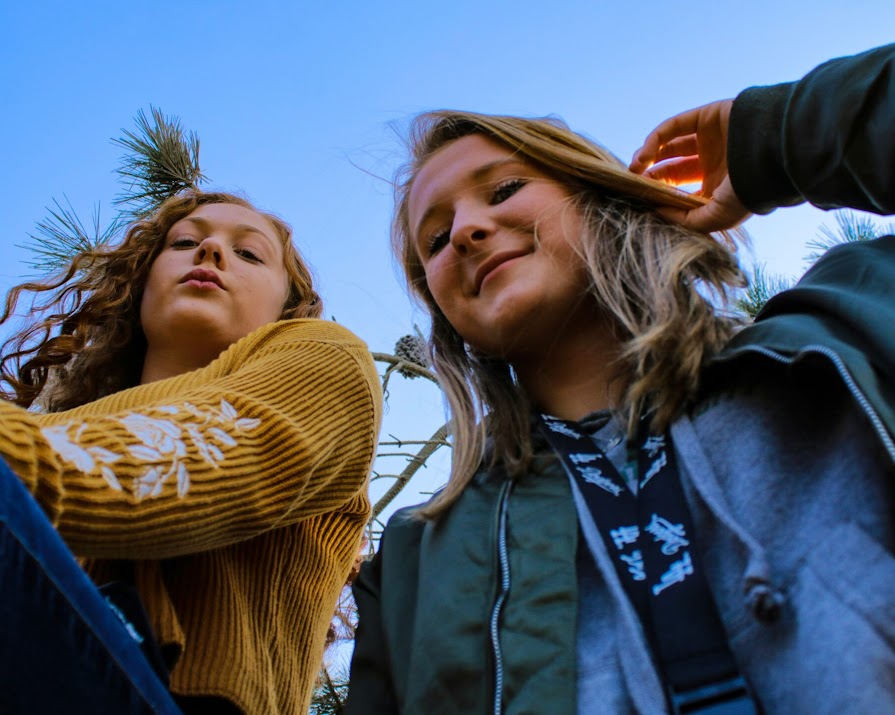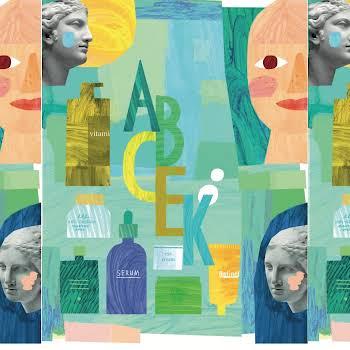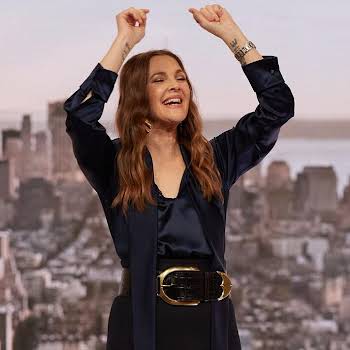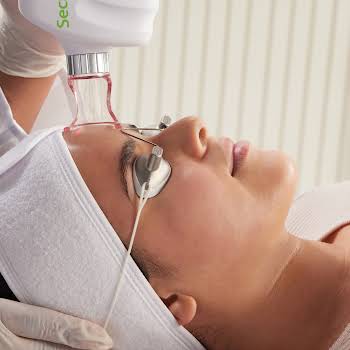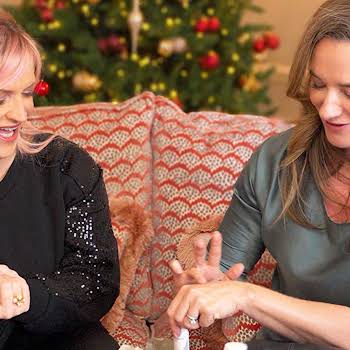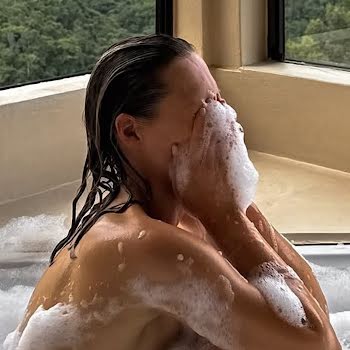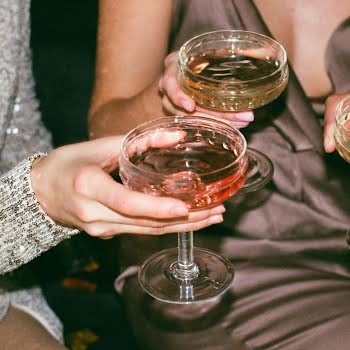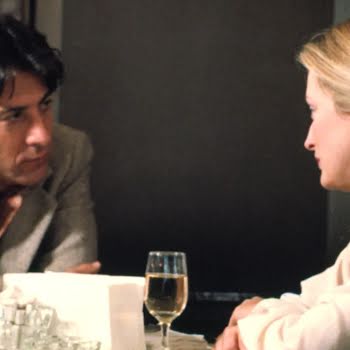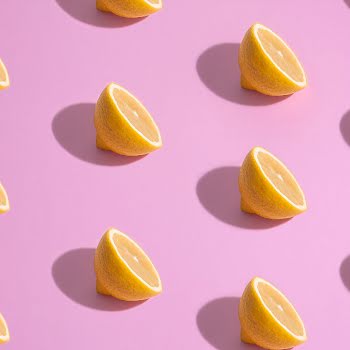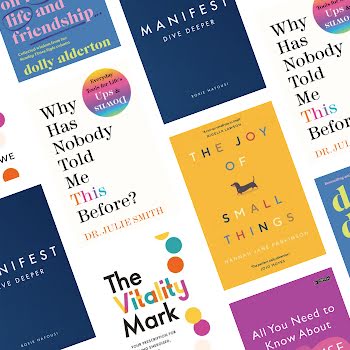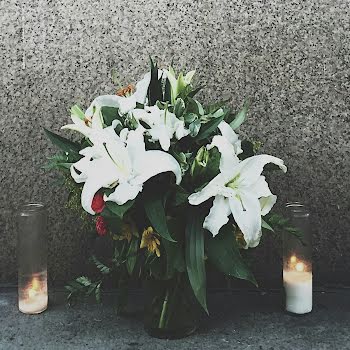Tween skincare: why are Irish 12-year-olds are terrified of ageing?
By Roe McDermott
10th Apr 2024
10th Apr 2024
More and more 10-12 year olds are buying anti-ageing skincare. How have we raised a generation of young girls who don’t know what a naturally ageing face looks like?
If you spend any time on the skincare or makeup corners of Instagram or TikTok, you may have noticed a new hashtag: #sephorakids. The tag shows tween girls under 12 flooding American beauty stores such as Sephora and Ulta Beauty and causing havoc, with workers reporting tweens being rude, messing up displays and even grabbing products out of other customers’ hands. But this isn’t a story of tweens just run amok – it’s tweens obsessively hunting down anti-ageing skincare. Let me repeat: 12-year-olds are obsessed with anti-ageing products.
Studies and consumer reports show that Gen Z spends more on skincare than any other generation, but not for the reasons you may think. While acne products have been marketed towards teens for decades and many young people have been sharing their favourite products to prevent or lesson a breakout or deal with a painful spot, pimples are no longer the focus of Gen Z’s skin concerns: they’re terrified on the signs of ageing. “Prejuvenation” is a term being used in videos by teens who espouse the benefits of retinoids, Vitamin C and exfoliating acids such as AHAs and BHAs for preventing wrinkles and signs of ageing – about fifteen years before these wrinkles would ever naturally appear. Dermatologists are warning about the dangers of tweens and teenagers using harsh products on their skin unnecessarily – but the question is, how the hell did we get to such a dystopian nightmare state where 12-year-old girls are terrified of ageing?
Uncomfortably, millennial women may need to put our hands up and take some of the blame.
Not that we’re the only reason. Thanks to the proliferation of social media and the impact of Covid which left Gen Z living, studying and socialising online for two years, there has never been a generation that has looked at their own faces more – all while receiving endless messages that their appearance needs intervention. Social media influencers, starved for ways to create new content and sell new products during the pandemic, turned to what they could show: elaborate skincare rituals involving numerous, often expensive products and marketing their multi-step routines as a form of self-care. Trends such as the ‘Clean Girl’ aesthetic jumped on the bandwagon, emphasising the importance of clear and glowing skin to new trends, and celebrities such as Kylie Jenner, Selena Gomez and Hailey Bieber and Ariana Grande started marketing skincare products towards their Gen Z fans. In 2017, Dior launched a campaign for its anti-ageing skincare line, Capture Youth. The face of the campaign was Cara Delevingne: a 25-year-old who didn’t need any help to “capture” youth – she hadn’t lost it in the first place.
Targeting advertising to children
Jessica DeFino is a brilliant ex-beauty writer now addressing the damaging impact of the beauty industry. In an interview on her Substack, DeFino addressed the nature of the anti-ageing marketing and why it’s both shallow and deeply effective.
“Anti-ageing is a beauty standard,” writes DeFino. “Plain and simple. Youthfulness is not a health goal. It is not a moral goal, no matter how often brands equate younthful skin with “good” skin. This is an aesthetic goal only. The history of this standard goes back centuries, it stems from systems of oppression. Patriarchy, white supremacy, and capitalism for sure. Anti-ageing is the ultimate capitalist goal, because it can never be met, right? It’s physically impossible to anti-age. And to try to anti-age is to be a consumer for life. So this is a very capitalist idea.” DeFino continues by addressing the nature of brands and companies that market anti-ageing products, writing “I don’t know that there is any way to ethically sell products that target signs of ageing. I don’t know that there is any way to ethically promote aesthetic changes without buying into beauty standards and therefore, perpetuating those standards.”
While none of these companies or trends in isolation started the anti-ageing panic amongst tweens, they helped build the foundation of a consumer base that was prepped and primed to be told that their natural skin wasn’t good enough. Enter companies like Drunk Elephant, Tower 28 and Good Weird, whose marketing deliberately started targeting tweens with their bold graphics, quirky “cool” designs, bright colours and young models have been embraced by younger and younger customers. In 2023, American parents reported that Drunk Elephant peptide creams topped many of their 10-12 years old Christmas lists – and these young consumers are set to spend millions on anti-ageing products over the next few years.
Data from Statistica shows that the baby and child skincare market is expected to experience an annual growth rate of about 7.71% until 2028, when it will reach €380 million in market volume worldwide. This increase isn’t simply because mothers will be buying more moisturisers that their kids will be messing with in the bathroom, it’s because the number of product users is expected to grow and reach 160.7 million worldwide by 2028. The beauty industry is deliberately targeting younger people to create a newer, much younger generation of consumers who will be spending their pocket money on anti-ageing skincare before they’ve even left secondary school.
Choice Feminism
But while companies and the beauty industry are jumping to sell anti-ageing products to literal children, the question remains of why tweens have developed such a fear of ageing in the first place: and millennial women, we have to accept some of the blame here.
Millennial women were the first generation for whom Botox and fillers were an affordable, accessible way to combat the signs of ageing – and we jumped all over it. Watching TV shows or films from the 1980s or 1990s compared to now, it is frankly remarkable how rapidly we erased wrinkles from the faces of women on screen. The number of famous women over 30 who have noticeable wrinkles is so small that it’s a news story when actresses such as Emma Thompson and Jodie Foster speak out about resisting the pressure to use Botox and erase any evidence that they have lived past thirty, moved their face or physically expressed an emotion. Growing up, Gen Z saw as millennial women defended getting “baby Botox” on their lunch breaks or used filler to fill in the natural lines beside our mouths or plump up naturally slimming cheeks. They listened as women used the language of feminism to defend their decision, saying that anything that makes an individual woman feel confident and empowered on a daily basis has to be feminist, right?
Well, no.
So-called “choice feminism” is based on this logic, claiming that a feminist life is lived when a woman makes decisions in line with her own desires, even if that involves harm to other women or perpetuating patriarchal ideas. And millennial women’s obsession with anti-ageing is peak choice feminism: sure, looking more attractive by the standards of patriarchy may boost one woman’s confidence levels on the daily. But as a generation, it conveys a message that ageing as a woman is unattractive, unacceptable and requires money, intervention and chemicals to combat. And Gen Z has received that message, loud and clear. How could they not? By erasing all public representation of what naturally ageing women look like, we’ve taught them to fear their own ageing process, wanting to postpone and prevent it by any means possible.
Now, I’m not here to blame individual women. I consider myself pretty clued in to the mechanisms of patriarchy; the ways in which women’s looks are constantly scrutinised and devalued; and the cynical, systemic way by which women are made to feel terrible about their appearance and natural ageing which is designed to keep us using our time, energy and money fighting ourselves rather than the real enemy of patriarchy. However, this intellectual awareness does not erase my own insecurities on a daily basis; I still fight an endless battle with my own appearance, wishing that I was more in line with conventional beauty standards while also wishing those standards could be burned to the ground. I completely understand individual women’s desire to bypass even one of those daily battles by getting some Botox or filler or more elaborate cosmetic procedures to look a bit younger and feel a bit more desirable – and I recognise how hard it is for an individual to resist the systemic pressure to look a certain way when it’s coming from all sides. There’s even an aspect of political and cultural control that cannot be overlooked; in a society where there is a political backlash to women’s rights with abortion rights being withdrawn in the States; a rise in misogynistic influencers demonising independent women; and economic factors such as the housing crisis and childcare costs stealthily pushing women out of the workplace while claiming we’re more empowered than ever, the world can feel like an overwhelming and unwelcoming place for women. Taking some control over our appearance and doing something to make us feel more confident in our appearance is an understandable response as we wrestle back some sense of control and worth.
But we are not just individuals. We are a community, a collective, a generation. We are the message-makers, the culture-shapers, the cycle-breakers, changers or keepers. What women do collectively matters; what we normalise or stigmatise carries through generations and is picked up by the girls who come after us, looking up to us, observing what we tolerate, celebrate and demonise. And frankly, not enough of us have been fighting back against ageist, patriarchal beauty standards. Millennial women have valued looking like younger people over protecting young people, and we’ve now taught a new generation that ageing is unacceptable.
If we want to reverse the damaging anti-ageing rhetoric that is harming women and young people, we need a cultural overhaul in how we think about and address ageing. ageing is living, and surviving, and gaining experience and wisdom and we need to celebrate that, not demonise evidence of it. Our focus needs to shift from valuing people for their appearances to their characters, and we need to start resisting the endless messages that tell women that our value lies in our ability to not look our age.
To raise a generation that feels empowered, valued and celebrated as they age, we have to start empowering, valuing and celebrating ourselves. We haven’t been doing a great job of that so far. But it’s never too late to start.




